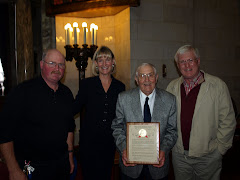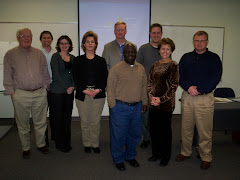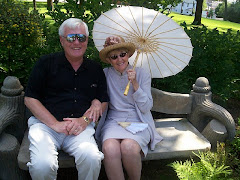Dr. Paul Rux teaches a course on global health for Lakeland College Online.
As part of his course, students listen to interviews by Milt Rosenberg, Ph.D., with experts from the audio archives of his program, Extension 720, at WGN Radio 720 A.M.
In this case study, a student evaluates an interview of how rejecting traditional moral responsibility in favor of therapeutic models of human behavior is causing growing chaos.
The fact that some students like William who abhors this moral vacuum gives some hope yet.
Week 4 – Audio Case Study – An Interview with Theodore Dalrymple, M.D.
William XXXXX
GEN442 Core III
5 Key Issues and Why I Chose Them
Issue 1: The Erosion of Civilized Standards of Conduct
According to interviewer, Milt Rosenberg, Dalrymple is “a voice crying out in the wilderness about the decline of Western civilization.” Theodore Dalyrymple is the pseudonym for Dr. Anthony Daniels, who served as a physician for fourteen years at a public hospital and adjacent prison in Birmingham, England. He claims that, on any given Saturday night, the streets of Birmingham and any number of small towns over the countryside are teeming with tens of thousands of drunken, rowdy youngsters in an atmosphere where violence can and does break out at any moment. I chose to identify the issue of the erosion of civilized standards of conduct because I have seen it all too often in the conduct of our American youth: especially in the suburban malls. On any week day, after school hours, shoppers must exit malls across America through a gauntlet of dispassionate, tuned-out teenagers who block the doorways and use loud, foul language while engaged in conversation with each other or while speaking into a cell phone. Commenting on this scenario, an old friend and former mayor of the small city of Defiance, Ohio, once said that the mall-rats of the new millennium had “reptile eyes.” It wasn’t so much what they would say as you walked by; instead it was the look they would give you: as if you were prey. Dalrymple believe that this erosion of civilized behavior is the fault of his country’s intellectuals, who have displaced years of self restraint as the norm of acceptable social behavior with the acceptance and encouragement of “degenerative behavior,” which the elite call liberation: “liberation that would allow the full beauty of the human personality to emerge.”
Issue 2: Illegitimacy
The elite’s “liberation” movement has caused such destruction of the social structure, that the state now supports a fatherless system, while withdrawing support for marriage. Dalrymple claims that, at his Birmingham hospital, the rate of illegitimate births would be 100% if it were not for those mothers of Indian descent. The rate has risen from 5% illegitimate births thirty to forty years ago to a present rate of 42%. This is similar to the inner-city rates in the United States. Dalrymple states that in Birmingham society, the male is seen not as a father, but “merely as an inseminator.”
Issue 3: Ideas That Have Consequences
Dalrymple accuses the intellectual elite of projecting their own problems onto society. He claims that the intellectual solution to each personal—and therefore societal—problem is the mantra, “if it feels good; do it.” This is a liberal idea that encourages spontaneity over contractual obligation; a philosophy championed by Rousseau and later perpetuated by Margaret Mead. Unfortunately, Mead’s observations on common sexual spontaneity in female adolescents were based on inaccuracies; the girls Mead studied simply “lied about their sexuality.” The “feels good; do it” attitude is really just an idea of consumerism, according to Dalrymple; when, in fact, people who live life with self restraint actually “have much happier lives.”
Issue 4: Delusions of Honesty
To Dalrymple, intellectuals tend to suffer from “delusions of honesty.” He uses former Prime Minister Blair as an example of an intellectual who suffers from these delusions and believes that “anything he does is well intentioned.” Dalrymple feels that elitists like Blair feel that they are “born with original virtue”, and consequently tend to say what people want to hear rather than what is best for them. While this may be well-intentioned, Dalrymple is convinced that it is bad for a person suffering from drug addiction.
Issue 5: The Primrose Path
According to Dalrymple, drug addiction is a matter of self choice. It is not a disease. Unlike disease, it takes time to become addicted, and at each step the drug abuser makes a choice to continue drug use. He takes exception to the concept that someone “becomes addicted.” Instead Dalrymple believes that people addict themselves. Unfortunately, the doctor has no answer for reversing the current increase in addiction tendencies; unless the “Chinese motivation” is socially accepted: “stop being addicted or I’ll kill you.” Until ways can be found to motivate the abuser to resist drug use; doctors, healthcare workers and social workers will keep the “culture of addiction” going as the medical bureaucracy says “medicate.”
In conclusion, Dalrymple breaks from conventional thought when he says that “criminality begets addiction,” rather than addiction leads to criminality. Interestingly, he maintains that if drugs were decriminalized—as proposed by the intellectual elite—drug dealers would not suddenly become traditional business men. Instead they would engage in other forms of criminal enterprise: because it is their nature to do so.
Friday, June 26, 2009
Subscribe to:
Post Comments (Atom)















No comments:
Post a Comment